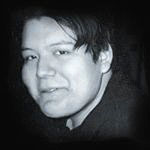|
Second, it is Violently Opposed... Third, it is Accepted as being Self-Evident." - Arthur Schopenhauer (1778-1860)
 By Charly Groenendijk
By Charly Groenendijk
AntidepressantsFacts March 22, 2005
Another tragical Prozac/Sarafem (fluoxetine) Homicide/Suicide School Shooting Massacre Jeff Weise, 17 Jeff Weise before taking Prozac 
 Jeff Weise after taking Prozac
Jeff Weise after taking Prozac
There are NO excuses left for the Pharma Public Relations Lords:
Jeff Weise was taking medication Prozac (fluoxetine) for a prolonged period of time:
Prozac-dosage upped within range of commonly prescribed dosage 1 week before shootings:
He was closely monitored by a mental health professional, teachers, friends & acquaintances:
He was befriended with and loved the ones he shot:
His friends noticed a negative personality change as a direct result of taking Prozac:
"PROZAC - INGREDIENT IN A DEADLY RAMPAGE?"
March, 27 2005
~~~~~~~~~~~~~
HEALTH SENTINEL March 27, 2005
Prozac - Ingredient in a Deadly Rampage?
As the victims are laid to rest from the horrible rampage that occurred at Red Lake Indian Reservation just days ago, which resulted in the deaths of 10 people, some are questioning the role Prozac may have played in this tragedy. According to a recent story in the New York Times, Tammy Lussier, Jeff Weise’s aunt, stated that, "They kept upping the dose for him and by the end, he was taking three of the 20 milligram pills a day. I can't help but think it was too much, that it must have set him off." Another relative of Mr. Weise, Lee Cook, said his medication had increased a few weeks before the shootings on Monday. Mr. Cook states that, “I do wonder whether on top of everything else he had going on in his life, on top of all the other problems, whether the drugs could have been the final straw.” 16-year old Sky Grant, a friend of Jeff Weise said he and Weise talked in detail about antidepressants. He said Weise told him he was taking 40 milligrams a day of Prozac: 20 in the morning, 20 at night. He noted that, “He was a lot more quiet. I wouldn't say any better.” According to the American Hospital Formulary Service Drug Information 2005, “FDA now states that it has determined that antidepressants increase the risk of suicidal thinking and behavior in children and adolescents with major depressive and other psychiatric disorders”, and states that, “FDA states that a causal relationship to antidepressants has been established in pediatric patients.” The text also notes that a study of over 4,400 children in short-term placebo controlled studies that the analysis revealed a greater risk of suicidal behavior or thinking in pediatric patients during the first few months of treatment. The average risk was 4% among children receiving antidepressant drugs, including Prozac, whereas those receiving placebo had a 2% risk. In other words, those taking the antidepressants were at “twice the risk”. The FDA also notes that, “patients being treated with antidepressants for any indication be closely monitored for clinical worsening, suicidality, and unusual changes in behavior, particularly during periods of dosage adjustment.” According to Drug Facts and Comparisons 2005, there are a number of possible side effects of Prozac. Among the side effects listed are: apathy, euphoria, hallucinations, hostility, neurosis, paranoid reaction, personality disorder, psychosis, antisocial reaction, delusions, confusion, suicidal ideation, and violent behaviors. An August 10, 2004 Washington Post article, stated that, “Two-thirds of the trials conducted by drug manufacturers found that the medications performed no better than sugar pills, but details of the negative trials were kept from doctors and parents.” In that article, Steven Hyman, former director of the National Institute of Mental Health, noted that, “more government-sponsored research is needed to objectively evaluate the issue. All the company-sponsored trials, for instance, excluded children who were suicidal to begin with.” Tarek A. Hammand, an FDA medical reviewer, found that compared with depressed children who got placebos, children who got antidepressants had 1.78 times the risk of making a suicide attempt or making preparations toward “imminent suicidal behavior.” Another FDA scientist, Andrew Mosholder, had found that children getting antidepressants had 1.9 times the risk of “serious suicide-related events.” Over the years a number of horrific events have made it into the headlines: 1989 – Joseph Wesbecker walked into a printing plant in Louisville, Kentucky and killed eight co-workers and then himself. Mr. Wesbecker was taking Prozac, which had recently been approved. 1998 – 14-year-old Kip Kinkle, who was on Ritalin and Prozac, killed his parents and then went on a shooting spree at his Springfield, Oregon, high school, killing two and injuring 22 1999 – Eric Harris, one of the teen gunmen in the infamous Columbine massacre in 1999, had been prescribed Luvox, an antidepressant similar to Prozac. The two boys entered the school with an arsenal of weaponry killed 12 people with many more injured before taking their own lives. 2001 – Christopher Pittman killed his grandparents while taking Zoloft, another antidepressant similar to Prozac. His lawyers faulted the drug, but a jury in Charleston, S.C., convicted him of murder in February. According to a recent New York Times article, Dr. Frank Ochberg, a former associate director of the National Institute of Mental Health, said he once dismissed any links between antidepressants and suicides or homicidal acts, but that recent research, however, has changed his mind. “If your intention is shooting the place up and dying as you do it, you can put the fantasy together,” he said. “Suicidal and homicidal intentions together could theoretically follow the same path.” As the first funerals began yesterday for victims of the shootings on the Red Lake Indian Reservation we should pause and examine this tragedy more carefully. If we don’t, then we will not ask, “whether” there will be another school shooting – but “when”. Comments: (Your Comment will be reviewed before posting)
Left by: Anonymous on Mar. 28, 2005 And also go to www.antidepressantsfacts.com and you will discover medical reports linking Prozac-induced "Akathisia" to not only suicidal but also aggressive and/or homicidal behaviours!
Left by: Anonymous on Mar. 28, 2005 Simply go to Dr Ann Tracy's website and/or www.drugawareness.org and you will discover the shocking truth that she is trying to tell everyone, including the president ! |

